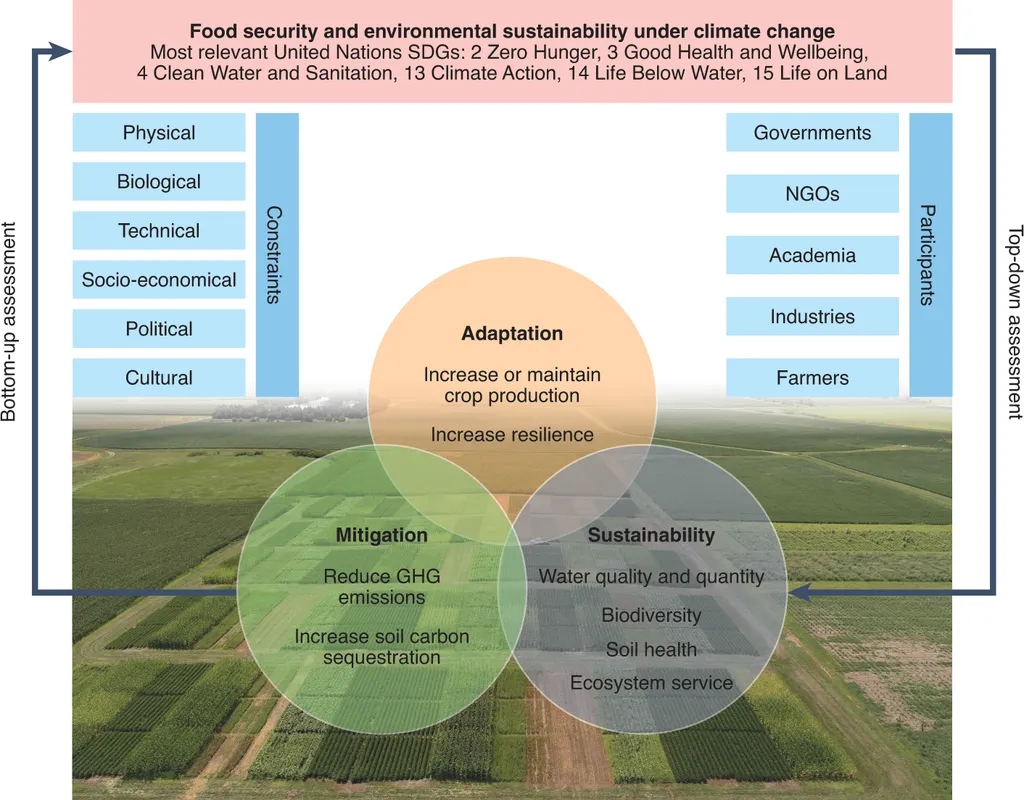In the rapidly evolving landscape of agricultural technology, a new study published in *Pesquisa Agropecuária Brasileira* sheds light on the critical role of data sharing in fostering sustainable and resilient farming practices. Led by Ivan Bergier, the research delves into the challenges and opportunities of creating a secure and transparent data-sharing environment for Environmental, Social, and Governance (ESG) reporting in agriculture and livestock.
Climate change poses an existential threat to global agriculture, with droughts, heatwaves, and floods disrupting supply chains and farm productivity. As international mitigation efforts stall, adaptation strategies become paramount. Digital transformation, powered by information technologies and data analytics, emerges as a beacon of hope. Precision and digital agriculture enable the collection, analysis, and sharing of data on farm management, supply chains, and certification, offering invaluable insights into sustainable practices.
However, the path is not without obstacles. Concerns about data privacy and security often hinder the full potential of these technologies, particularly in ESG reporting. Bergier’s study examines these issues through a semantic network derived from a systematic literature review, identifying factors that influence stakeholders’ willingness to share data.
“The willingness to share data is a complex interplay of technological safeguards, regulatory frameworks, and market incentives,” Bergier explains. “Building trust among stakeholders is crucial for fostering participation and transparency.”
The research highlights how ESG platforms, such as Semear Digital, can support climate adaptation initiatives. By leveraging data sharing, these platforms can enhance resilience and adaptive capacity in agricultural systems, ultimately benefiting farmers and consumers alike.
For the agriculture sector, the commercial impacts are profound. Enhanced data sharing can lead to more efficient supply chains, improved farm management practices, and better certification processes. This transparency can attract environmentally conscious consumers and investors, opening new markets and revenue streams.
Moreover, the study underscores the importance of interoperability and trust in data-sharing platforms. As Bergier notes, “A broad technological adoption is necessary to strengthen resilience and adaptive capacity in agricultural systems facing climate change.”
The findings suggest that the future of agriculture lies in the seamless integration of data-driven technologies, supported by robust regulatory frameworks and market incentives. By addressing data privacy concerns and fostering trust, the agriculture sector can harness the full potential of digital transformation to build a more sustainable and resilient future.
As the world grapples with the consequences of climate change, this research offers a roadmap for leveraging technology to adapt and thrive. For stakeholders in the agriculture sector, the message is clear: embracing data sharing and digital transformation is not just an option but a necessity for long-term success.

